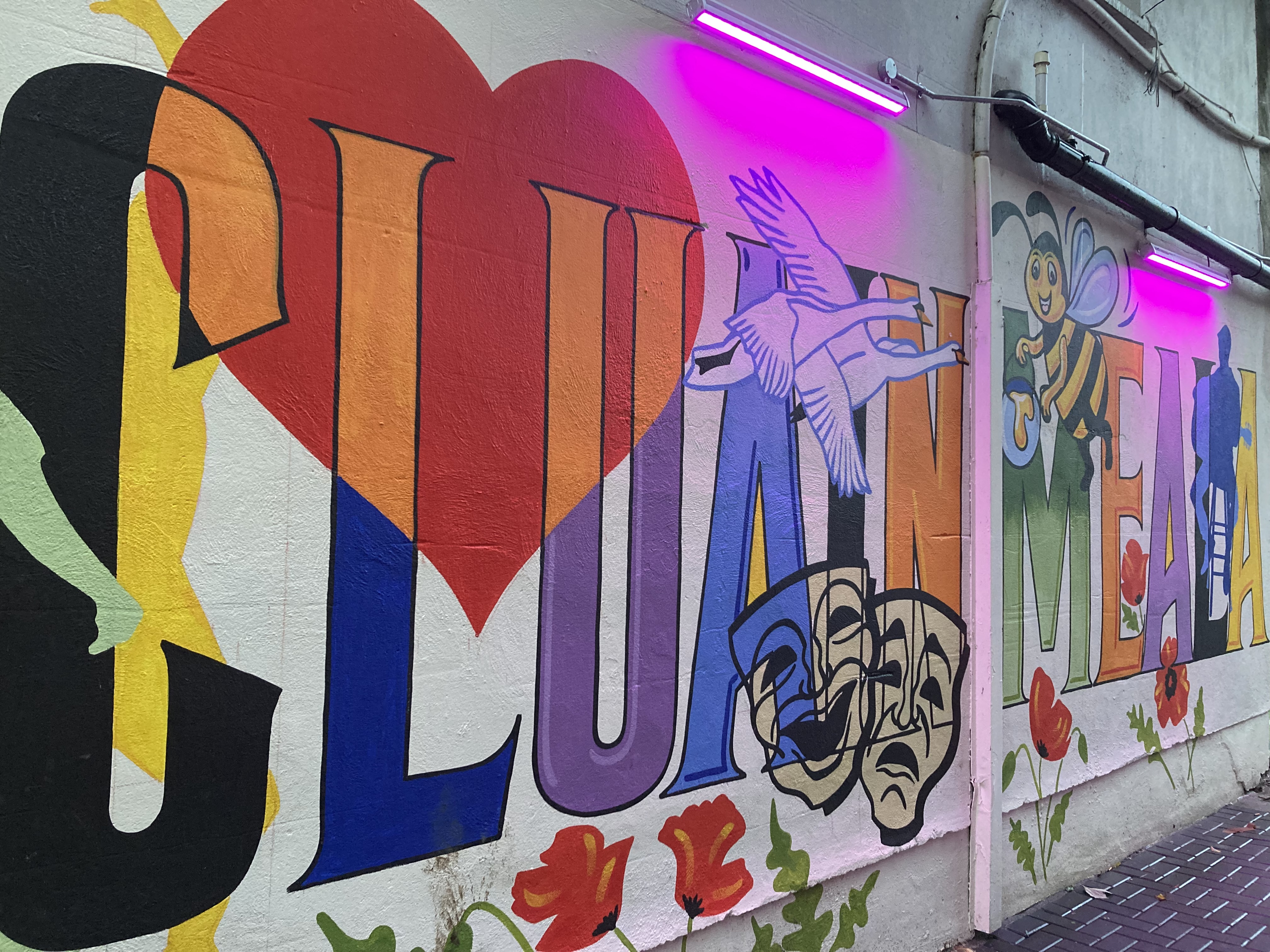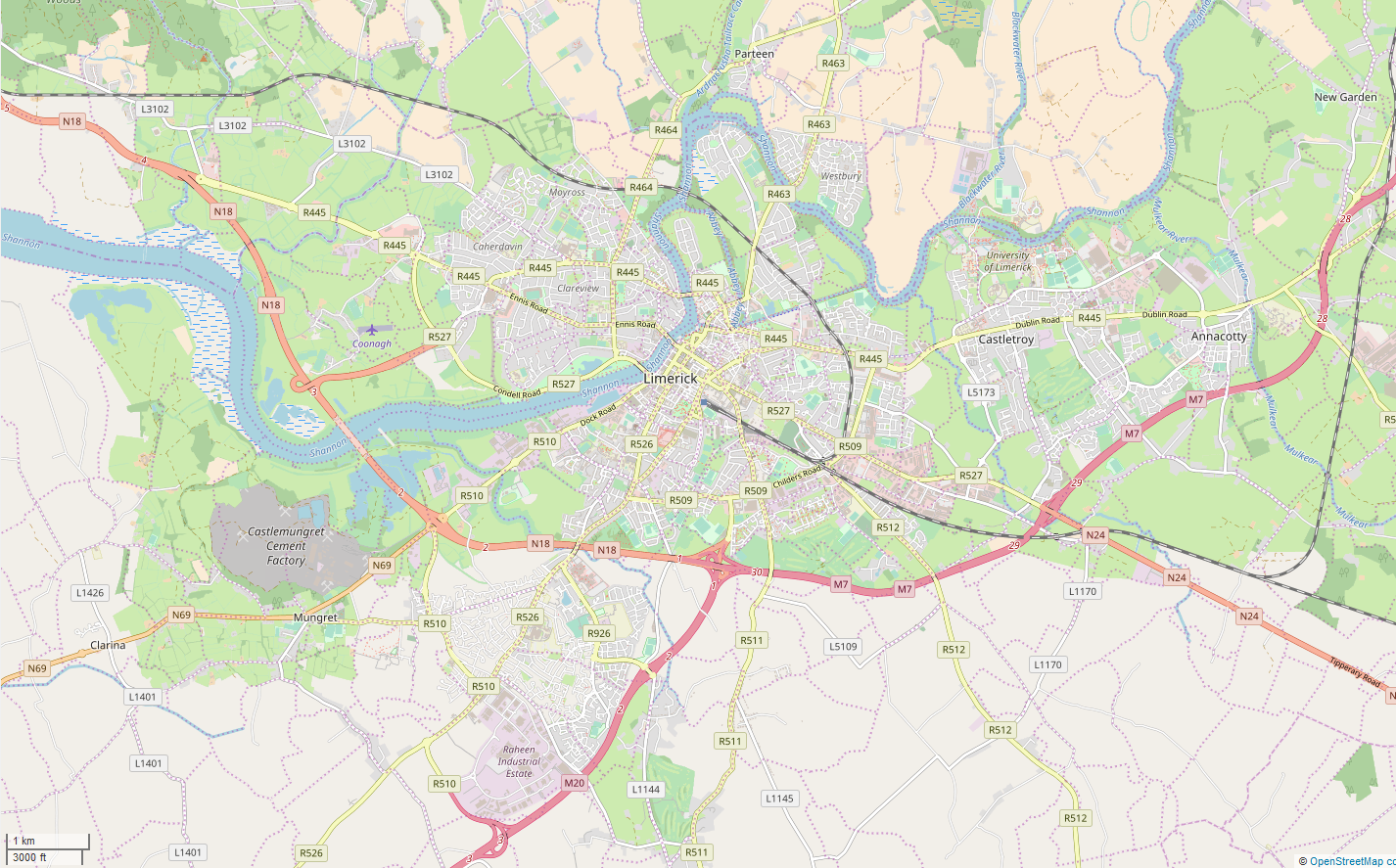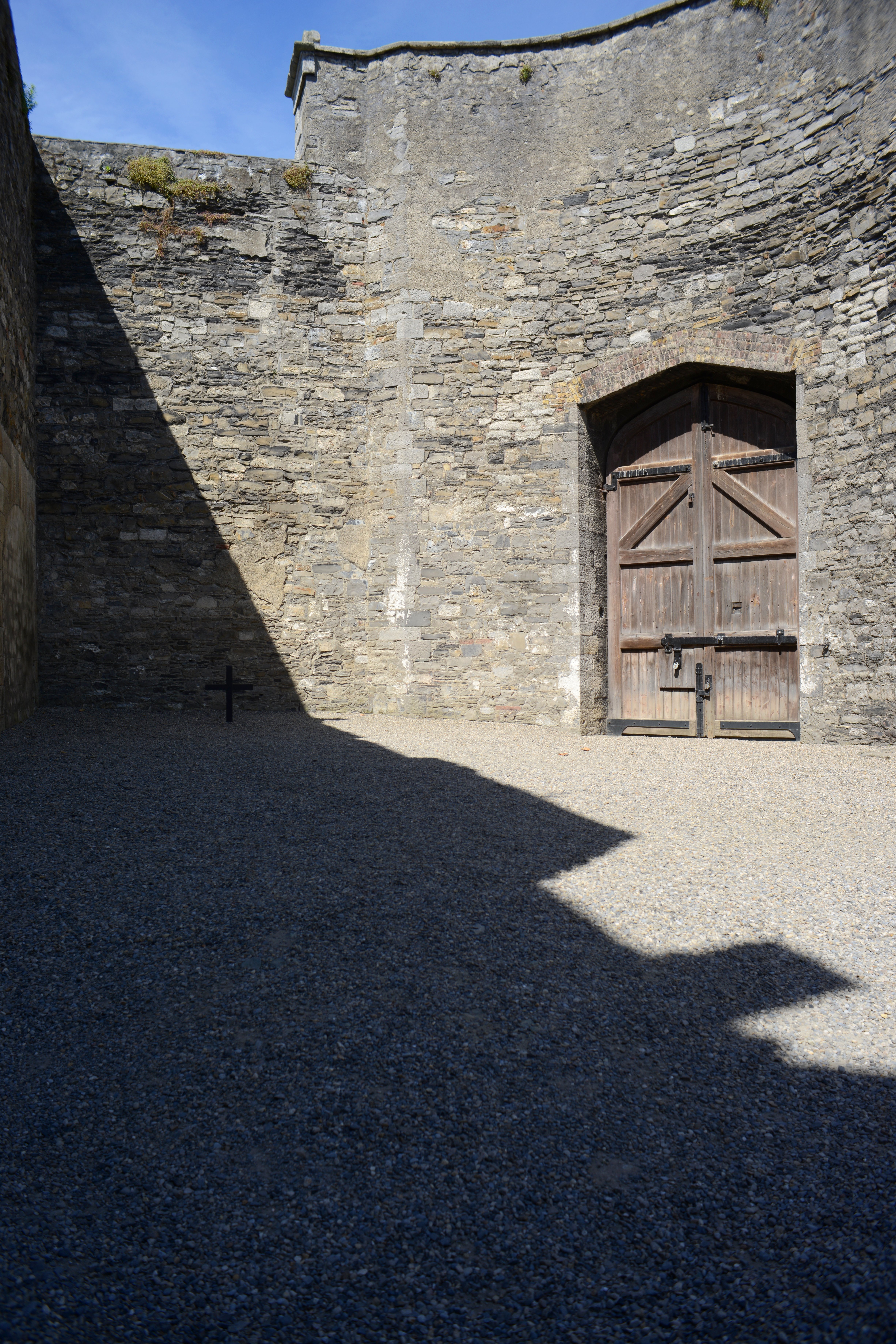|
Clonmel Town Hall
Clonmel Town Hall ( ga, Halla Baile Chluain Meala) is a municipal building in Parnell Street, Clonmel, County Tipperary, Ireland. The building accommodated the offices of Clonmel Borough Council until 2014. History In the 1870s, Clonmel Corporation decided to commission a town hall. The site they selected was occupied by a 17th century house, commissioned by a timber merchant, Richard Hamerton, which was known as Hamerton Hall, before it was converted into a public house known as the Great Globe Inn in around 1850. The corporation acquired the site and demolished the house in 1878. The new building was designed in the Dutch Renaissance style, built in brick with a cement render finish at a cost of £6,000, and was officially opened by the mayor, Edward Cantwell, on 4 January 1882. The design involved a symmetrical main frontage of five bays facing onto Parnell Street. The central bay featured a square-headed doorway flanked by Doric order pilasters supporting a cornice, an ent ... [...More Info...] [...Related Items...] OR: [Wikipedia] [Google] [Baidu] |
Clonmel
Clonmel () is the county town and largest settlement of County Tipperary, Republic of Ireland, Ireland. The town is noted in Irish history for its resistance to the Cromwellian conquest of Ireland, Cromwellian army which sacked the towns of Drogheda and Wexford. With the exception of the townland of Suir Island, most of the borough is situated in the Civil parishes in Ireland, civil parish of "St Mary's" which is part of the ancient Barony (Ireland), barony of Iffa and Offa East. Population The 2016 Census used a new boundary created by the Central Statistics Office (Ireland), Central Statistics Office (CSO) to define the town of Clonmel and Environs resulting in a population figure of 17,140. This new boundary omitted part of the Clonmel Borough Boundary which the CSO had defined as Legal Town for the 2011 census 11.55 km/sq. All of the 2011 census CSO environs in Co Waterford have been omitted as well as parts of CSO environs of Clonmel in Co Tipperary. The CSO as part of ... [...More Info...] [...Related Items...] OR: [Wikipedia] [Google] [Baidu] |
Dormer
A dormer is a roofed structure, often containing a window, that projects vertically beyond the plane of a pitched roof. A dormer window (also called ''dormer'') is a form of roof window. Dormers are commonly used to increase the usable space in a loft and to create window openings in a roof plane. A dormer is often one of the primary elements of a loft conversion. As a prominent element of many buildings, different types of dormer have evolved to complement different styles of architecture. When the structure appears on the spires of churches and cathedrals, it is usually referred to as a ''lucarne''. History The word ''dormer'' is derived from the Middle French , meaning "sleeping room", as dormer windows often provided light and space to attic-level bedrooms. One of the earliest uses of dormers was in the form of lucarnes, slender dormers which provided ventilation to the spires of English Gothic churches and cathedrals. An early example are the lucarnes of the spire of C ... [...More Info...] [...Related Items...] OR: [Wikipedia] [Google] [Baidu] |
Minister For The Environment, Community And Local Government
The Minister for Housing, Local Government and Heritage ( ga, An tAire Tithíochta, Rialtais Áitiúil agus Oidhreachta) is a senior minister in the Government of Ireland and leads the Department of Housing, Local Government and Heritage. The current Minister for Housing, Local Government and Heritage is Darragh O'Brien, TD. He is assisted by two Ministers of State: *Malcolm Noonan, TD, Minister of State, with special responsibility for Heritage and Electoral Reform; and * Peter Burke, TD, Minister of State, with special responsibility for Local Government and Planning. Overview The Minister is responsible for, among other matters: *housing; *local authorities and related services; *the supervision of elections, including general elections and presidential elections A presidential election is the election of any head of state whose official title is President. Elections by country Albania The president of Albania is elected by the Assembly of Albania who are elected b ... [...More Info...] [...Related Items...] OR: [Wikipedia] [Google] [Baidu] |
Phil Hogan
Phil Hogan (born 4 July 1960) is an Irish Fine Gael politician who served as European Commissioner for Trade between 2019 and 2020, and previously European Commissioner for Agriculture and Rural Development between 2014 and 2019. He previously served as Irish Minister for the Environment, Community and Local Government from 2011 to 2014 and Minister of State at the Department of Finance from 1994 to 1995, as well as a Teachta Dála (TD) for the Carlow–Kilkenny constituency from 1989 to 2014. Early and private life Hogan was born in Kilkenny in 1960, and grew up on a farm near the village of Tullaroan. He was educated locally in St. Joseph's College, Freshford, and St. Kieran's College, Kilkenny. Afterwards, he attended University College Cork, where he graduated with a Bachelor's degree in Economics and Geography and subsequently a Higher Diploma in Education from the same university. After completing his university studies, he returned to Tullaroan to manage his family ... [...More Info...] [...Related Items...] OR: [Wikipedia] [Google] [Baidu] |
Local Government Reform Act 2014
The Local Government Reform Act 2014 (No. 1) is an act of the Oireachtas which provided for a major restructuring of local government in Ireland with effect from the 2014 local elections. It merged some first-tier county and city councils, abolished all second-tier town and borough councils, and created a new second tier of municipal districts covering rural as well as urban areas. It also provided for a plebiscite on whether to create a directly elected executive Mayor of the Dublin Metropolitan Area (distinct from the existing ceremonial office of Lord Mayor of Dublin city) although this provision was not activated. The act was introduced as a bill on 15 October 2013 by Phil Hogan, the Minister for the Environment, Community and Local Government, and signed into law on 27 January 2014 by President Michael D. Higgins. Most of its provisions came into force on 1 June 2014. Background The Local Government Act 2001 had replaced the Local Government (Ireland) Act 1898 as the ... [...More Info...] [...Related Items...] OR: [Wikipedia] [Google] [Baidu] |
Tipperary County Council
Tipperary County Council ( ga, Comhairle Contae Thiobraid Árann) is the authority responsible for Local government in the Republic of Ireland, local government in County Tipperary, Republic of Ireland, Ireland. It came into operation on 3 June 2014 after the 2014 Irish local elections, 2014 local elections, following the merger of North Tipperary County Council and South Tipperary County Council under the provisions of the Local Government Reform Act 2014. As a county council, it is governed by the Local Government Act 2001. The council is responsible for housing and community, roads and transportation, urban planning and development, amenity and culture, and natural environment, environment. The council has 40 elected members. Elections are held every five years and are by single transferable vote. The head of the council has the title of Cathaoirleach (other), Cathaoirleach (Chairperson). The county administration is headed by a Chief executive (Irish local government ... [...More Info...] [...Related Items...] OR: [Wikipedia] [Google] [Baidu] |
Limerick
Limerick ( ; ga, Luimneach ) is a western city in Ireland situated within County Limerick. It is in the province of Munster and is located in the Mid-West which comprises part of the Southern Region. With a population of 94,192 at the 2016 census, Limerick is the third-most populous urban area in the state, and the fourth-most populous city on the island of Ireland at the 2011 census. The city lies on the River Shannon, with the historic core of the city located on King's Island, which is bounded by the Shannon and Abbey Rivers. Limerick is also located at the head of the Shannon Estuary, where the river widens before it flows into the Atlantic Ocean. Limerick City and County Council is the local authority for the city. Geography and political subdivisions At the 2016 census, the Metropolitan District of Limerick had a population of 104,952. On 1 June 2014 following the merger of Limerick City and County Council, a new Metropolitan District of Limerick was formed within ... [...More Info...] [...Related Items...] OR: [Wikipedia] [Google] [Baidu] |
Irish Trades Union Congress
The Irish Trades Union Congress (ITUC) was a union federation covering the island of Ireland. History Until 1894, representatives of Irish trade unions attended the British Trades Union Congress (TUC). However, many felt that they had little impact on the British body, and the Dublin Trades Council had twice tried and failed to form an Irish federation of trade unions. Its third attempt, the Irish Trades Union Congress, met for the first time in April 1894. Although some Irish delegates continued to attend the British TUC, their decision to bar representatives of trades councils from 1895 increased dissatisfaction, and the ITUC soon became the leading Irish union federation. Despite this, the new federation adopted the form of the British TUC, differentiating itself primarily by offering lower subscription rates and lower costs for delegates to attend its annual congress. In 1900, the British TUC asked the ITUC to amalgamate with it, but this request was rejected.Joan Campbel ... [...More Info...] [...Related Items...] OR: [Wikipedia] [Google] [Baidu] |
William O'Brien (trade Unionist)
William O'Brien (23 January 1881 – 31 October 1968) was a politician and trade unionist in Ireland. While rarely dominating the political spotlight, O'Brien was incredibly powerful and influential behind the scenes, maintaining a firm grip over Ireland's trade unions for many decades. Besides his leadership in the trade unions, O'Brien was a founder, alongside James Larkin and James Connolly, of the Labour Party of Ireland. In later years a rift formed between Larkin and O'Brien that would last the rest of their lives and often divide the labour movement in Ireland. Early life O'Brien was born in Ballygurteen, Clonakilty, County Cork on 23 January 1881, and was christened as 'John William'. He was the fourth child and third son of Daniel O'Brien of County Tipperary and Mary O'Brien (née Butler) of County Kilkenny. His father Daniel, an Irish nationalist, devout Catholic, and Irish-language revivalist had been a member of the Royal Irish Constabulary before retiring at the ra ... [...More Info...] [...Related Items...] OR: [Wikipedia] [Google] [Baidu] |
James Larkin
James Larkin (28 January 1874 – 30 January 1947), sometimes known as Jim Larkin or Big Jim, was an Irish republican, socialist and trade union leader. He was one of the founders of the Irish Labour Party along with James Connolly and William O'Brien, and later the founder of the Irish Worker League (a communist party which was recognised by the Comintern as the Irish section of the world communist movement), as well as the Irish Transport and General Workers' Union (ITGWU) and the Workers' Union of Ireland (the two unions later merged to become SIPTU, Ireland's largest trade union). Along with Connolly and Jack White, he was also a founder of the Irish Citizen Army (ICA; a paramilitary group which was integral to both the Dublin lock-out and the Easter Rising). Larkin was a leading figure in the Syndicalist movement. Larkin was born to Irish parents in Toxteth, Liverpool, England. Growing up in poverty, he received little formal education and began working in a variety of j ... [...More Info...] [...Related Items...] OR: [Wikipedia] [Google] [Baidu] |
James Connolly
James Connolly ( ga, Séamas Ó Conghaile; 5 June 1868 – 12 May 1916) was an Irish republican, socialist and trade union leader. Born to Irish parents in the Cowgate area of Edinburgh, Scotland, Connolly left school for working life at the age of 11, and became involved in socialist politics in the 1880s. Although mainly known for his position in Irish socialist and republican politics, he also took a role in Scottish and American politics. He was a member of the Industrial Workers of the World and founder of the Irish Socialist Republican Party. With James Larkin, he was centrally involved in the Dublin lock-out of 1913, as a result of which the two men formed the Irish Citizen Army (ICA) that year; they also founded the Irish Labour Party along with William O'Brien. Connolly was the long term right-hand man to Larkin in the Irish Transport and General Workers' Union (ITGWU) until taking over leadership of both the union and its military wing the ICA upon Larkin's departu ... [...More Info...] [...Related Items...] OR: [Wikipedia] [Google] [Baidu] |
Labour Party (Ireland)
The Labour Party ( ga, Páirtí an Lucht Oibre, literally "Party of the Working People") is a centre-left and social-democratic political party in the Republic of Ireland. Founded on 28 May 1912 in Clonmel, County Tipperary, by James Connolly, James Larkin, and William O'Brien (trade unionist), William O'Brien as the political wing of the Irish Trades Union Congress, it describes itself as a "democratic socialist party" in its constitution. Labour continues to be the political arm of the Irish trade union and labour movement and seeks to represent workers' interests in the Dáil and on a local level. Unlike many other Irish political parties, Labour did not arise as a faction of History of Sinn Féin, the original Sinn Féin party, although it incorporated Democratic Left (Ireland), Democratic Left in 1999, a party that traced its origins back to Sinn Féin. The party has served as a partner in coalition governments on eight occasions since its formation: seven times in coaliti ... [...More Info...] [...Related Items...] OR: [Wikipedia] [Google] [Baidu] |


_-_Trade_(48822651836).jpg)



